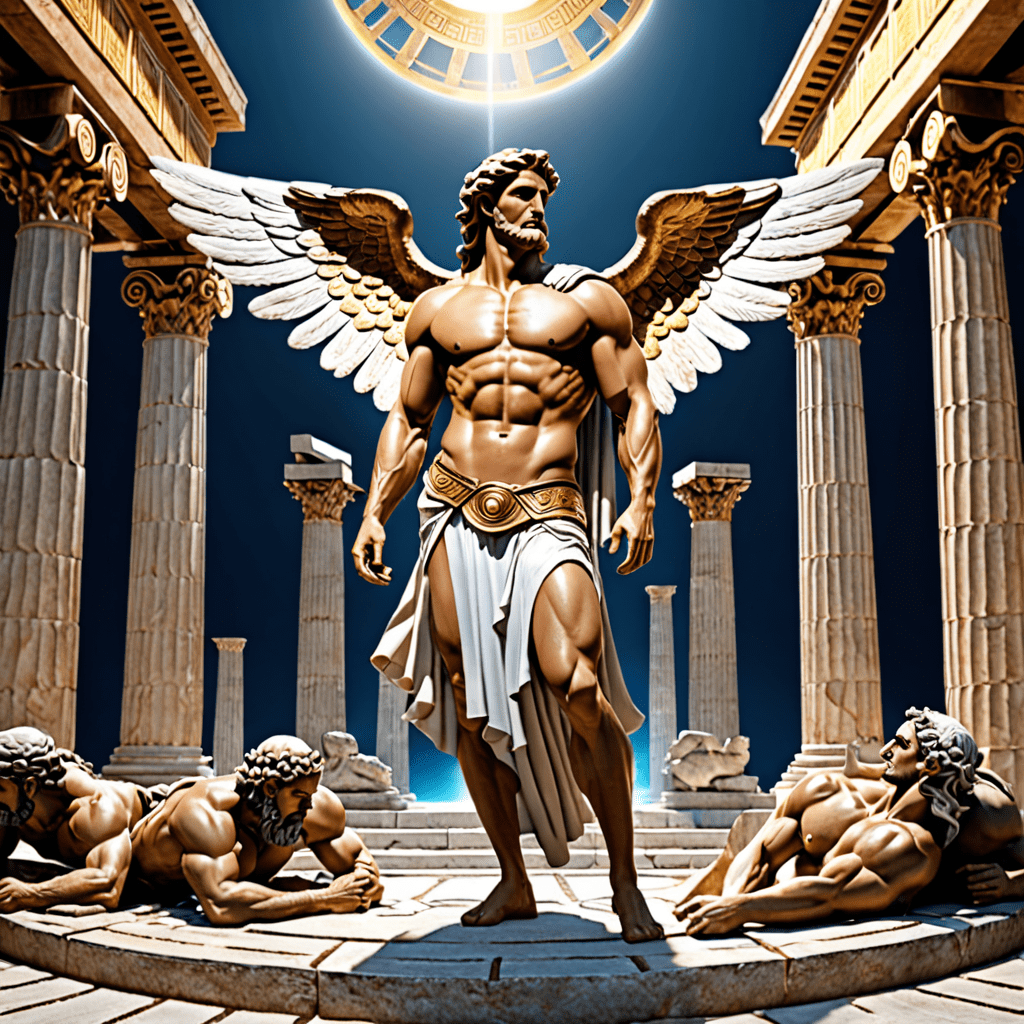Introduction
Ancestors hold a profound significance in Slavic mythology, deeply intertwined with beliefs about the supernatural, the divine, and the interconnectedness of generations. Slavic people believed that ancestors played a vital role in shaping their lives, providing protection, guidance, and serving as intermediaries between the living and the otherworldly realms.
Ancestors as Protectors and Guardians
славянские предки, славянская мифология, славянские боги, славянская культура, славянские верования
In Slavic mythology, ancestors were revered as guardians and protectors of their descendants. They were believed to watch over their families, offering support and intervening in times of need. Slavic people often sought the help of their ancestors in important life events, such as weddings, births, and funerals.
Ancestors as Intermediaries with the Divine
предки заступники, предки посредники, славянская мифология, славянские боги, славянская культура, славянские верования
Slavic people believed that ancestors could intercede with the divine on their behalf. They served as mediators between the living and the otherworldly realms, conveying prayers and offerings to the gods and goddesses. Ancestors were often invoked in rituals and ceremonies to seek their favor and support.
The Role of Ancestors in Rituals and Ceremonies
славянские предки, славянские обряды, славянская мифология, славянские боги, славянская культура, славянские верования
Ancestors played a central role in Slavic rituals and ceremonies. They were honored through feasts, offerings, and sacrifices. The cult of ancestors was particularly strong in Slavic villages, where families maintained shrines and altars dedicated to their departed loved ones.
Ancestors in Slavic Folklore and Legends
славянский фольклор, славянские легенды, славянская мифология, славянские боги, славянская культура, славянские верования
Slavic folklore and legends are replete with tales of ancestors. They were often depicted as wise and benevolent spirits who guided their descendants or as powerful protectors who intervened in human affairs. Ancestors were also believed to manifest in dreams, offering advice and warnings.
6. Ancestors as Sources of Wisdom and Guidance
Slavic people believed that ancestors possessed a wealth of wisdom and guidance. They were seen as repositories of knowledge and experience, passed down through generations. Descendants often sought the advice of their ancestors in important matters, such as marriage, child-rearing, and career choices.
7. Reverence for Ancestors and Ancestral Graves
In Slavic culture, reverence for ancestors was deeply ingrained. Ancestral graves were considered sacred sites, and it was believed that disrespectful treatment of these graves could incur the wrath of the ancestors. Slavic people often visited ancestral graves to pay their respects, leave offerings, and seek guidance.
8. The Cult of Ancestors in Slavic Villages
The cult of ancestors was particularly strong in Slavic villages. Each family maintained a shrine or altar dedicated to their departed loved ones. These shrines were often adorned with images, relics, and offerings. Descendants regularly performed rituals and ceremonies at these shrines to honor their ancestors and seek their protection.
9. Ancestors in Death and Beyond
In Slavic mythology, death was not seen as an end but rather a transition to a different realm of existence. Ancestors were believed to continue living in the afterlife, watching over their descendants and participating in the affairs of the living. Their spirits were often invoked in rituals and ceremonies to honor their memory and seek their assistance.
10. Conclusion: The Enduring Legacy of Ancestors
The belief in the importance of ancestors remains an enduring legacy in Slavic culture. Ancestors are revered as protectors, guardians, and sources of wisdom. Their memory is preserved through rituals, ceremonies, and the preservation of ancestral graves. The cult of ancestors continues to play a vital role in shaping Slavic identity and spiritual beliefs.
FAQ
What is the significance of ancestors in Slavic mythology?
Ancestors are revered in Slavic mythology as protectors, guardians, intermediaries with the divine, and sources of wisdom. They are believed to play an active role in the lives of their descendants, offering support, guidance, and protection.
How did Slavic people honor their ancestors?
Slavic people honored their ancestors through rituals, ceremonies, and the preservation of ancestral graves. They maintained shrines dedicated to their departed loved ones, where they offered prayers, offerings, and sought guidance.
What was the role of ancestors in Slavic rituals and ceremonies?
Ancestors played a central role in Slavic rituals and ceremonies. They were invoked as protectors, intermediaries with the divine, and sources of wisdom. Descendants sought their favor and support in important life events, such as weddings, births, and funerals.
How did Slavic people view death and the afterlife?
Slavic people believed that death was a transition to a different realm of existence. Ancestors were believed to continue living in the afterlife, watching over their descendants and participating in the affairs of the living. Their spirits were often invoked in rituals and ceremonies to honor their memory and seek their assistance.
How does the cult of ancestors continue to influence Slavic culture today?
The belief in the importance of ancestors remains an enduring legacy in Slavic culture. Ancestors are still revered as protectors, guardians, and sources of wisdom. Their memory is preserved through rituals, ceremonies, and the preservation of ancestral graves. The cult of ancestors continues to play a vital role in shaping Slavic identity and spiritual beliefs.




